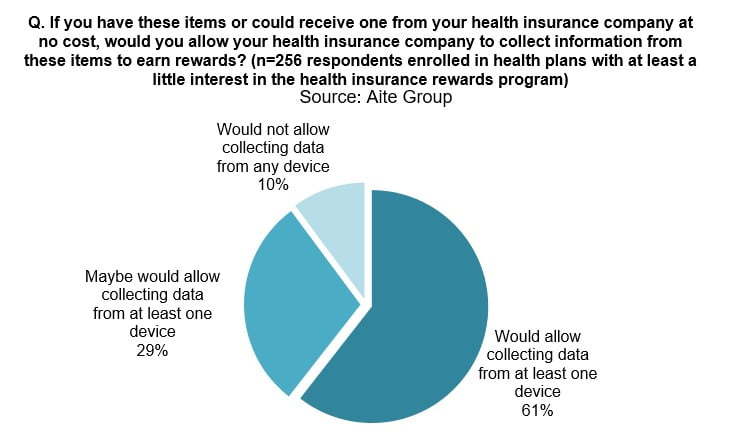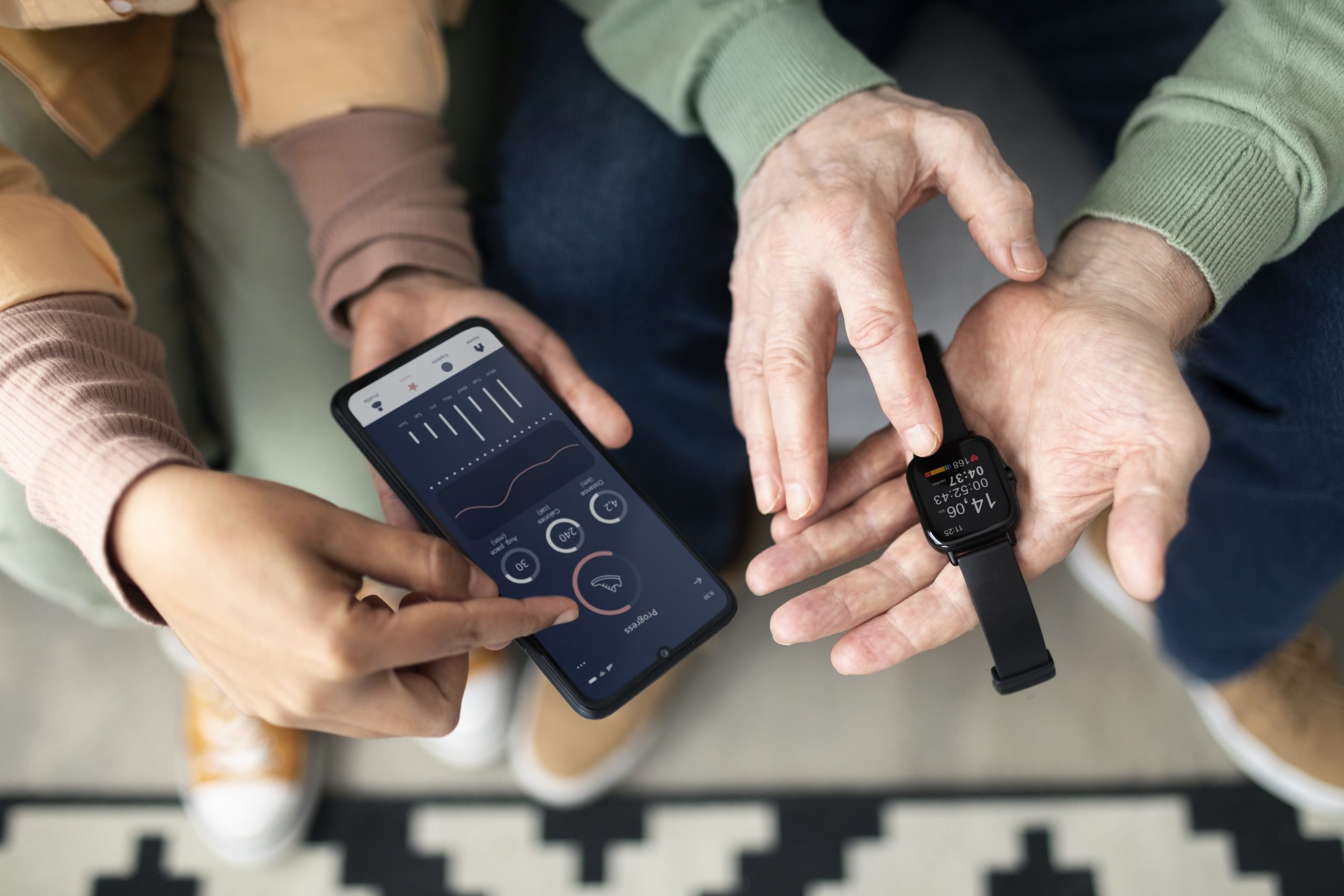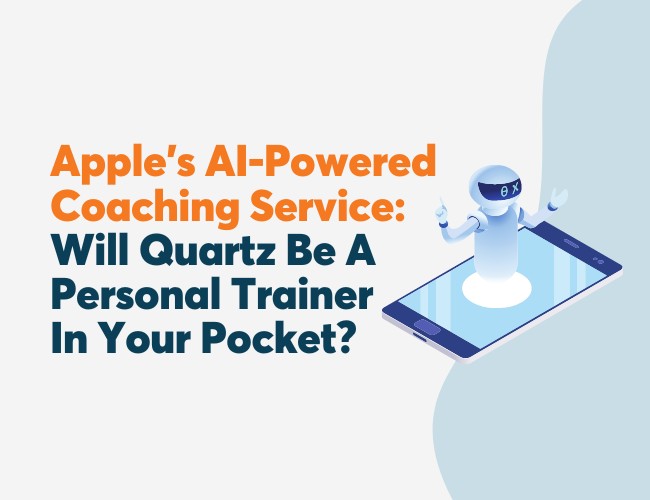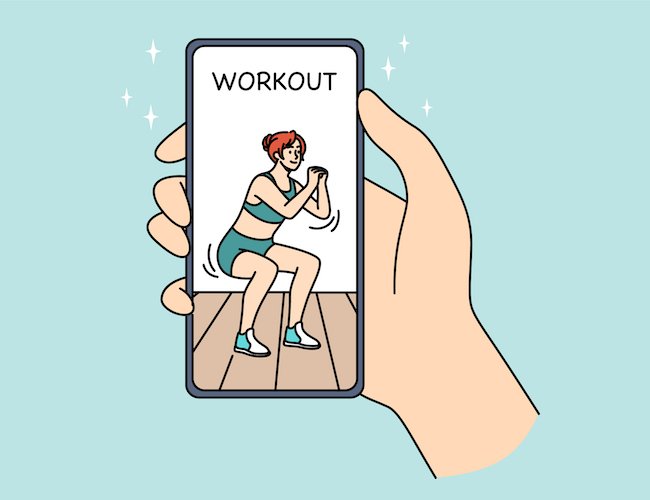According to a survey by Aite Group of 766 American consumers, employees have financial and privacy-related concerns when it comes to using fitness trackers or devices. However, if financial incentives were a part of a health program, it would increase people’s willingness to share their fitness data.
Forty-two percent of respondents were worried about using fitness trackers with an employer-sponsored health plan in case they were penalized for poor health habits. By incorporating a rewards program, more people were swayed to share health information and wellness habits. Sixty-one percent expressed an interest in sharing data from a tracking device if rewards were involved.
The cost associated with devices and trackers was one of the main reasons why people weren’t currently using these tools; off-setting that price with rewards may influence more people to actively track their wellness habits. Over half (59%) of those willing to enroll in a health program with incentives would prefer gift cards or premium discounts as incentives. Consumers are also motivated to participate in exchange for a free connected device, such as a fitness tracker or blood pressure monitor.

Importantly, many of those surveyed do not want a device in their home or car that would always be gathering data. This indicates that there is still a strong desire for privacy and control. Most employers would do best to evaluate their specific workforce’s interests and concerns when it comes to any data collection.
While it may help, this study suggests that incentives may not always be needed to improve employee well-being or the effectiveness of a wellness program. For some employee groups, a rewards program might produce better engagement numbers. Younger generations, in particular, tend to be comfortable with sharing information via technology; over a third of the survey’s younger respondents reported already own a smart connected device. For others, the need for privacy and control might outweigh the desire for rewards.
If an employer has a particular desire to measure employee’s improvements, however, collecting data is key. Alternatives, such as self-reporting health habits, can be less reliable.
Types of Rewards
For those that are motivated by rewards, the type of reward may factor into how motivated they are to share data. The survey discovered that rewards needed to be relevant to the daily life of the recipient, with about three-quarters of those surveyed saying they participated in a grocery store’s savings program because it was so useful to them.
Similarly, employers can pick from a variety of rewards types that meet the needs of the company as well as the interests of its workforce. Gift cards and free fitness gear are two popular incentives. Contributing funds to a health savings or retirement account, lowering an employee’s health premium, or rewarding extra vacation days can function as great incentives as well as contribute to improving other areas of an employee’s well-being.
Addressing Concerns About Devices’ Usefulness
The report also revealed concerns related to the actual usefulness of the tools and apps available with connected devices. Only 11% of those surveyed with health plans also regularly use a food-logging tool or app. Nearly two-thirds (63%) of respondents do not find diet or food-logging tools to be useful.
This less-than-enthusiastic perspective may be difficult to combat. Creating a supportive social environment that promotes wellness may help sway some coworkers. Leading by example, by having managers participate in a wellness program and engage others in how to use tools or devices, may also be encouraging. Sharing educational resources that address a specific issue a workforce struggles with (such as smoking or stress management) can also help persuade individuals that a device might actually be more useful than they assume. Of course, when skepticism is strong, financial incentives may be one of the best ways to get someone to try something new in the first place.












